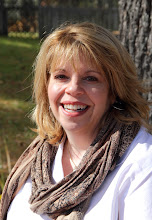Kibbe on Marketing: Thoughts on Savvy’s PR Boot Camp
I recently attended the PR Boot Camp presented by Savvy Workshop, a Manchester marketing and print services firm. Several area professionals each discussed the various aspects of that mysterious science and art known at public relations. I thought I’d share with you some of the concepts I found important.
“Public Relations” is not advertising, nor is it strictly synonymous with marketing. It’s easier to say that advertising and marketing are aspects under the public relations umbrella. “Public relations is managing reputation and branding,” said Monica Bardier, owner of Ping PR .
Today there are many different outlets you can use to get your company noticed. It’s not just newspapers and radio anymore. What does this mean to you? If you aren’t present in the digital/social universe in some form, you might as well not exist. This doesn’t mean you should ignore a printed medium, quite the contrary (e.g. print magazine subscriptions are growing), just don’t focus on that exclusively.
When thinking about how you will interact with your customers, Savvy’s Mike Glazner said to think about them first, not about your company. Don’t tell your customers how many whizbangs your widget has, tell them all about the problems in their life your widget will solve.
A good deal of public relations is just that – interacting with the public. And that requires interacting with the media. A big part of why I started Kibbe on Marketing was to hopefully educate folks on just how to get us media-types interested in what you have to say.
Mike Emerton of Bridgeview Marketing was spot on in recommending that business owners should develop relationships with editors and reporters. As a reporter, my virtual door was always open. With the advent of social media you can get to know publications and those who work for them much more easily. You can see what kind of topics and sectors they write about.
Matt Mowry, editor of Business New Hampshire magazine, made a very good point about relationships with the media. Editors and reporters are friendly, “but we are not your friends.” We are not writing an ad for you; we write news. This means we ask questions. A lot of them. And ones that can possibly be uncomfortable. For example, if you have no intention of giving me some financial data, say percent growth, don’t waste Matt’s or my time.
Feature coverage – that is a piece about you and your company alone – is rare. Don’t ask for it, because it’s just not going to happen. You pretty much have to have made cold fusion energy available at Walmart in order to get me to give you 1,500 words to yourself.
And if we’ve just published an article on widgets similar to yours, said Matt, we probably won’t be doing another story on that for a longtime – like a year or more – if ever again. So don’t ask for that either. A good review of a particular publication’s editorial calendar is in order.
You could easily have filled the whole PR Boot Camp seminar on the ins and outs of social media and search engine optimization, more affectionately known as SEO. I am scratching the surface of this myself.
Allen Voivod, who owns Epiphanies Inc., a social media strategy firm, with his wife Lani, gave a number of important points to consider when moving into the social realm.
While setting up a Facebook page and Twitter feed are free, think a little first what you want to accomplish. “Social media” is just that – it’s a place for social interaction, not commercials. Think of it more as a place to have conversations with your customers, ask them about their preferences and learn from them.
When you are getting the word out about your company, Allen said to tie your press release and website together by using the same keywords in both communications. This is at the core of SEO. If you want to learn more about all things social, stay tuned for the upcoming seminar by Epiphanies Inc.
Savvy Workshop’s next seminar will be the Sales Boot Camp, Friday, Feb. 24, from 10 a.m. to 5 p.m. Visit www.savvyworkshop.com for details.
Cindy Kibbe is owner of Cindy Kibbe Creative Communications, a writing services firm based in New England. She was an editor for a regional business publication for nearly a decade. She can be reached at cindy@kibbecreative.com.

